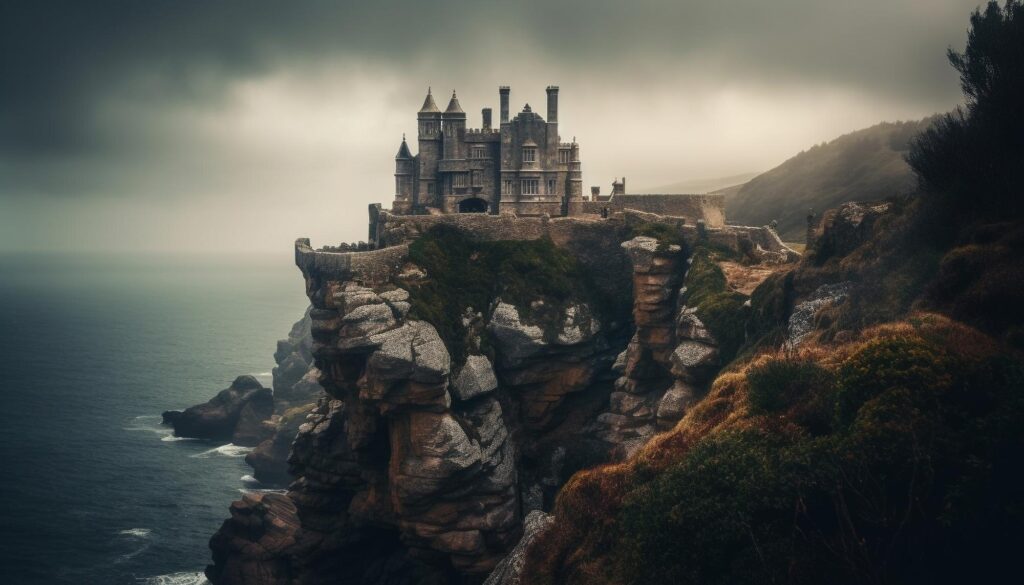Dolorous Guard
Dolereuse Garde, Dolereuse Tor, La Dolerouse Chartre, Doloreuse Chartre, La Doloroeuse Chartre, La Doloroeuse Garde, La Doloroeuse Tor, Dolorous Chartre, Dolorous Garde
A castle located on the River Humber. It was originally known as Joyous Garde and later reverted to that name. Lancelot names its original ruler as Brandin of the Isles (Brandus des Illes), while La Tavola Ritonda calls him Federiel.

The castle was magically enchanted so that any knight who wished to enter had to fight two sets of ten knights – one set at each of two gates – one by one until he defeated them all. He then would have to kill the ruler or stay in the castle for forty days before the enchantments could be lifted and the people freed. The names of the knights that had tried the adventure were written on gravestones within the inner wall of the castle, and their “heads” were next to the stones, but in actuality, the knights were imprisoned in the Dolorous Prison. Many knights lost their freedoms in this manner.
Lancelot defeated the twenty knights through the help of some magical shields from the Lady of the Lake, but Brandin fled before Lancelot could fight him. The people of the castle became restless when Lancelot kept leaving, because he was interrupting the forty-day cycle and preventing their freedom.
Finally, he went into the depths of the castle, braved a difficult adventure, and returned with the key to the enchantments, which freed the residents. Lancelot them renamed the castle Joyous Guard. He held on to the castle, lived there from time to time, hosted his companions there, and interred his friend Galehaut in its cemetery. When Lancelot rescued Guinevere from the stake, he brought her to the castle. When he was forced out of Britain by Arthur, he changed the castle’s name back to Dolorous Guard.
In some versions, Lancelot is brought to Dolorous Guard after his death and is buried with Galehaut. In the Post-Vulgate Mort Artu, we are told that King Mark of Cornwall exhumed their bodies and destroyed them.
It has been identified with Bamburgh Castle in Northumberland.
Sources
Lancelot do Lac | 1215-1220
Vulgate Lancelot | 1215-1230
Vulgate Mort Artu | 1215-1230
Post-Vulgate Mort Artu | 1230-1240
Prose Tristan | 1230-1240
La Tavola Ritonda | 1325–1350
Le Morte Darthur | Sir Thomas Malory, 1469-1470
